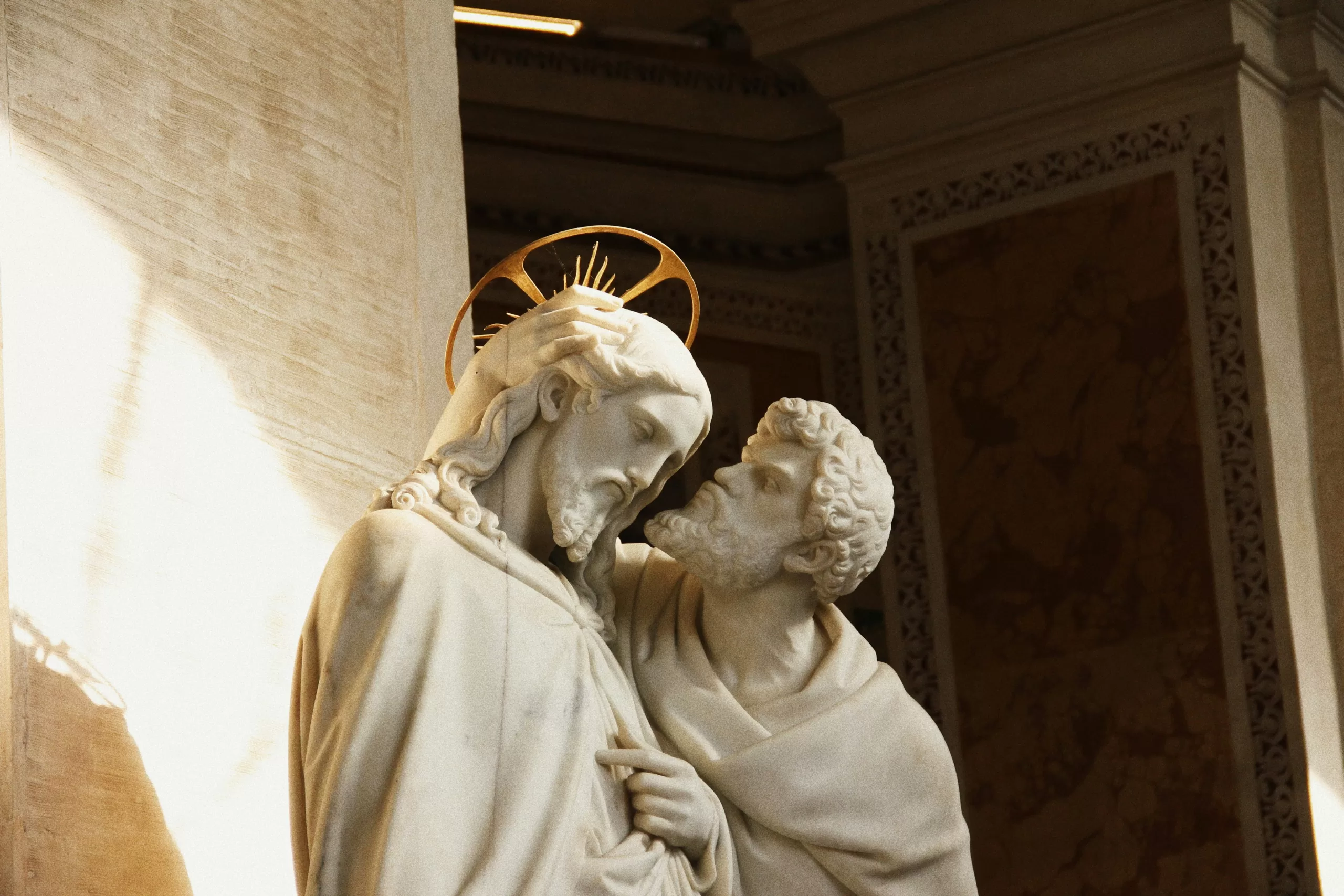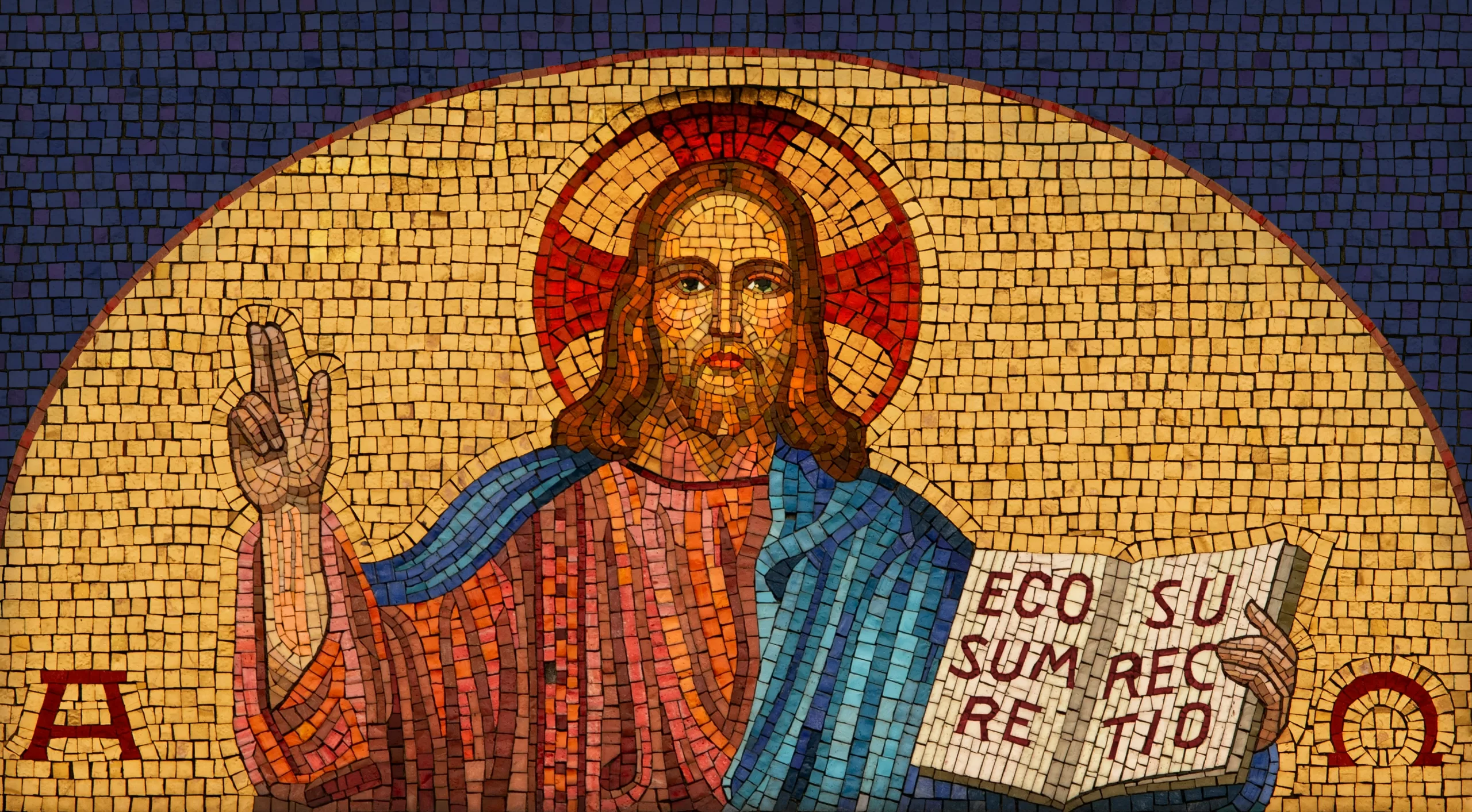As the penitential season of Lent comes to a close and we enter into the sacred Triduum, there is a disturbing, yet key figure to Our Lord’s passion that demands reflection on, Judas Iscariot. As we read in the scriptures, Judas is one of the 12 original Apostles appointed by Jesus himself. Judas Iscariot is an interesting figure in scriptures, to be sure, yet not a lot is spoken of him before his betrayal and death. One interesting fact that we do know about Judas from the scriptures is his origin. With the surname Iscariot (Hebrew “a man of Kerioth”, which is a city of Judah), we know that being from Judah, he is different from the rest of the group as the rest of the 12 were all Galileans. Judas is an outlier in this regard. Being from a city in Judah, we cannot deny the correlation between Judas and the Old Testament figure who this tribe was named after, Judah, son of Israel.
What do we know about Judah? Well, we know he was one of the 12 tribes of Israel, and a son of Jacob. But moreso, we know him in his role as betraying his brother Joseph by selling him in slavery to the Egyptians.
“Then Judah said to his brothers, “What profit is it if we slay our brother and conceal his blood? Come, let us sell him to the Ish’maelites, and let not our hand be upon him, for he is our brother, our own flesh.” And his brothers heeded him. Then Mid’ianite traders passed by; and they drew Joseph up and lifted him out of the pit, and sold him to the Ish’maelites for twenty shekels of silver; and they took Joseph to Egypt.” (Genesis 37:26-28).
There are many connections we see here between the betrayal of Joseph and the betrayal of Jesus. Both figures were betrayed by someone named Judah/Judas (Same name), they were both betrayed for silver (Jesus for 30 pieces & Joseph for 20), and their betrayal also led to both of them becoming savior figures. Joseph saved many from famine in Egypt, and Jesus is the savior of the world.
We see the act of betrayal weaved throughout all of scripture, going back even further to Cain betraying Abel, and even to the beginning of humankind, where Adam & Eve betray God. In Matthew’s Gospel, during the Passover with his disciples, Jesus makes a petrifying statement about the one who is to betray him, “The Son of Man goes as it is written of him, but woe to that man by whom the Son of Man is betrayed! It would have been better for that man if he had not been born” (Mt. 26:24). These are pretty intense words here from Jesus, clearly showing the magnitude of betraying the Son of Man.
So what do we make of this figure who is Judas?
I think for most people who grew up with a Christian upbringing, Judas is a familiar figure to us. We all know Judas as the man who betrayed Christ, but we often do not think of him much past that fact itself. We can even think of Judas of this man with purely evil intentions from the start of his discipleship with Jesus, and how he was plotting this betrayal for his years spent with Christ. We can also think of him as someone who never believed in Jesus at all. The fact that Judas stayed following Christ as long as he did was a testament in itself, and another testament was after Jesus’ Bread of Life discourse. “After this many of his disciples drew back and no longer walked with him” (Jn. 6:66). Who does not walk away here? The Apostles, including Judas. One can dispute what is going on in the heart of Judas at this point, but he has an opportunity to walk away with a multitude of disciples, yet chooses to stay.
We know in the scriptures that Judas’ betrayal was not a one-time act of rebellion towards Our Lord. In John’s Gospel, when after Jesus is anointed by Mary of Bethany, we see him write:
“But Judas Iscariot, one of his disciples (he who was to betray him), said, “Why was this ointment not sold for three hundred denarii and given to the poor?” This he said, not that he cared for the poor but because he was a thief, and as he had the money box he used to take what was put into it”(Jn. 12:4-6).
As mentioned above, this ultimate sin of Judas on Spy Wednesday was not a one-time random action that was committed, but came from a gradual failing in lesser things that eventually led to this great betrayal. This reality is no different from the faithful living in the world today. How does the evil one trick and tempt us? Not in blatant and obvious ways, but small, subtle ways like he tempted Eve in the Garden of Eden.
If we examine our own consciences and past sins, we will clearly see that our gravest actions were not spontaneous, random events, but were slowly built up over time with lesser faults and actions, ultimately leading us down a path of despair and destruction.
But is Judas purely evil? No, he is not. Judas is a man who, through his own free will, made choices to become the man he turned out to be in the story of Our Lord’s passion. He is a pure example of what can happen to a disciple when he falls away from God’s grace. For us, I think it is daunting to think about this reality, but I would argue it is of vital importance.
In his book The Gulag Archipelago, Aleksandr Solzhhenitsyn says:
“The line separating good and evil passes not through states, nor between classes, nor between political parties either — but right through every human heart — and through all human hearts. This line shifts. Inside us, it oscillates with the years. And even within hearts overwhelmed by evil, one small bridgehead of good is retained”
In all of us, regardless of how far we are in our relationship with the Lord, there is an interior rebel, an attitude of betrayal that can be unleashed if we so choose and deny God. Although this interior rebelliousness is present and comes out in the form of sin, there is a redeeming solution to this action of man, God’s Mercy and forgiveness.
Judas vs Peter
Let’s compare Judas to our friend St. Peter. Both these two men are guilty of similar things, denying/betraying Jesus. Judas does so in handing Him over to the Jews, and Peter does so in his threefold denial.
What is the difference between these two? Repentance and acceptance of God’s mercy.
Judas decides to despair, ultimately leading him to becoming prideful to think that his sin is too great to be forgiven, which leads to his suicide. In the Gospel of Matthew, there is a glimpse of Judas’ sorrow, but this sorrow comes without acceptance of God’s mercy.
“When Judas, his betrayer, saw that he was condemned, he repented and brought back the thirty pieces of silver to the chief priests and the elders, saying “I have betrayed innocent blood.” They said, “What is that to us? See it to yourself.” And throwing down the pieces of silver in the temple, he departed, and he went out and hanged himself”(Mt. 27:3-5).
Peter on the other hand, repents, comes back to Jesus, and eventually dies a heroic death in martyrdom during the Emperor Nero’s persecution of the Church. One of these men is revered as a great Saint of the church, and the other not. A reality that we need to ponder is that if he were to repent, Judas Iscariot could have been a great saint and witness to the Catholic faith, and would have stayed among the 12 and evangelized the world for Christ.
Being a disciple and follower of the Lord includes this clear yet challenging choice: Will I choose to accept God’s mercy and forgiveness or will I reject it?
We would never go so far as to say that St. Peter or any of us earn salvation by repentance, but that we accept the invitation from Jesus to allow ourselves to receive this gift of salvation and mercy from him. This question of salvation comes up in the Gospels:
“Who then can be saved? But Jesus looked at them and said to them, “With men this is impossible, but with God all things are possible”(Mt. 19:25-26).
This is Christian perfection: To lovingly accept God’s mercy that he is offering us, over and over again until the day that we pass from this Earth. Let us not despair in our sins, but we ought to rejoice in the resurrection of Christ and rejoice that he has opened up the way to salvation through His merciful love. Our lives should be centered around our growth in love to God and our neighbor, not merely avoiding sin. If we do this, the Blessed Trinity awaits us to welcome us into the Beatific Vision for all eternity. Let this be our hope and our joy!
Kent, William. “Judas Iscariot.” The Catholic Encyclopedia. Vol. 8. New York: Robert Appleton Company, 1910. <http://www.newadvent.org/cathen/08539a.htm>.
Solzhenitsyn, Aleksandr. The Gulag Archipelago. HarperCollins. 2020



